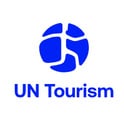Imperatives For A Sustainable Recovery Of The Air Travel Industry In Africa
Joint message by AFCAC AFRAA, ACI Africa, CANSO, IATA and UNWTO at the auspices of the 9th AFRAA Aviation Stakeholders’ Convention, 18-19 May 2021
Africa is running a race against time in the battle against the historic crisis for the air travel industry posed by the COVID-19 pandemic.
The different organizations in the aviation ecosystem have to date demonstrated resilience to some extent, leading to much progress made in restarting the industry on the continent.
COVID-19 is a global challenge that requires global solutions and international solidarity and collaboration.
The evolution of the virus is unpredictable and therefore there is need for a co-ordinated approach by African States for sustainable recovery of the air travel industry.
We, the undernamed stakeholders, therefore urge the decision-makers in the various instances to consider the following steps for a durable restart and recovery of the air travel industry in Africa:
-
Harmonization of travel protocols
There is need for constant and sustained dialogue among African governments, civil aviation authorities, tourism and travel industry players, air transport associations and other key stakeholders, to implement harmonized and internationally adopted health and travel protocols to bring back the necessary confidence for a safe, simple and seamless air travel in the new normal. -
Accessibility of COVID-19 testing facilities
African States are encouraged to make available universal, accessible and affordable COVID-19 testing facilities to all air travellers, i.e. PCR or Rapid antigen tests. -
Reduction of high PCR test costs in Africa
There is need for the reduction of the high cost of testing fees noting that the PCR test costs are very high in some African States. Where possible, African States are also urged to consider alternative testing protocol for travel that uses the rapid diagnostic antigen test which is more cost-effective. -
Expedition of the vaccine roll-out campaign in Africa
Vaccines, coupled with testing and the current health measures in place, present the most efficient way out of this pandemic. It is therefore vital that the vaccine roll-out campaign in Africa is expedited equitably with the prime objective of achieving the herd immunity or that level of vaccination which inhibits the ability of the virus to circulate in the population. -
Lifting of prohibitive travel restrictions
African States are encouraged to consider steps towards lifting prohibitive travel restrictions in the form of quarantine measures for fully vaccinated and negatively tested travellers. In the short term, quarantines may be applicable only to passengers coming from those determined areas with a very high incidence of the virus, to be regularly reviewed in co-ordination with national and international health authorities. -
Adoption of globally interoperable digital health passes
African States are further encouraged to adopt any form of globally interoperable digital health pass or certificate, approved by the World Health Organization, that will seamlessly integrate into testing and travel processes of the different stakeholders of the air travel industry.
About UN Tourism
The World Tourism Organization (UN Tourism) is the United Nations agency responsible for the promotion of responsible, sustainable and universally accessible tourism.
As the leading international organization in the field of tourism, UN Tourism promotes tourism as a driver of economic growth, inclusive development and environmental sustainability and offers leadership and support to the sector in advancing knowledge and tourism policies worldwide.
Our Priorities
Mainstreaming tourism in the global agenda: Advocating the value of tourism as a driver of socio-economic growth and development, its inclusion as a priority in national and international policies and the need to create a level playing field for the sector to develop and prosper.
Promoting sustainable tourism development: Supporting sustainable tourism policies and practices: policies which make optimal use of environmental resources, respect the socio-cultural authenticity of host communities and provide socio-economic benefits for all.
Fostering knowledge, education and capacity building: Supporting countries to assess and address their needs in education and training, as well as providing networks for knowledge creation and exchange.
Improving tourism competitiveness: Improving UN Tourism Members' competitiveness through knowledge creation and exchange, human resources development and the promotion of excellence in areas such as policy planning, statistics and market trends, sustainable tourism development, marketing and promotion, product development and risk and crisis management.
Advancing tourism's contribution to poverty reduction and development: Maximizing the contribution of tourism to poverty reduction and achieving the SDGs by making tourism work as a tool for development and promoting the inclusion of tourism in the development agenda.
Building partnerships: Engaging with the private sector, regional and local tourism organizations, academia and research institutions, civil society and the UN system to build a more sustainable, responsible and competitive tourism sector.
Our Structure
Members: An intergovernmental organization, UN Tourism has 160 Member States, 6 Associate Members, 2 Observers and over 500 Affiliate Members.
Organs: The General Assembly is the supreme organ of the Organization. The Executive Council take all measures, in consultation with the Secretary-General, for the implementation of the decisions and recommendations of the General Assembly and reports to the Assembly.
Secretariat: UN Tourism headquarters are based in Madrid, Spain. The Secretariat is led by the Secretary-General and organized into departments covering issues such as sustainability, education, tourism trends and marketing, sustainable development, statistics and the Tourism Satellite Account (TSA), destination management, ethics and risk and crisis management. The Technical Cooperation and Silk Road Department carries out development projects in over 100 countries worldwide, while the Regional Departments for Africa, the Americas, Asia and the Pacific, Europe and the Middle East serve as the link between UN Tourism and its 160 Member States. The Affiliate Members Department represents UN Tourism's 500 plus Affiliate members.
UN Tourism Communications Department
+34 91 567 8100
UN Tourism
